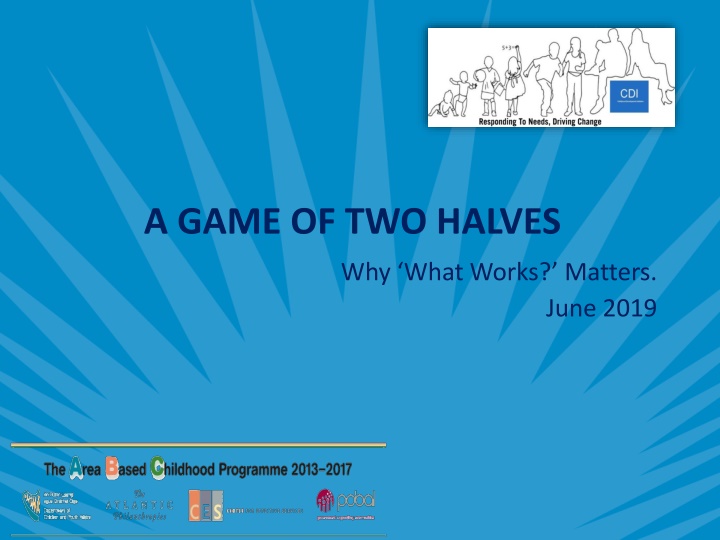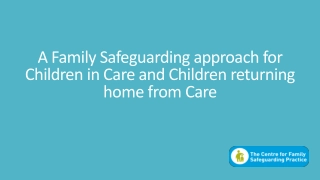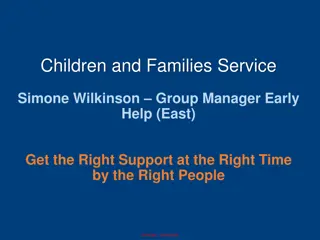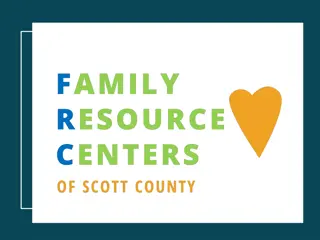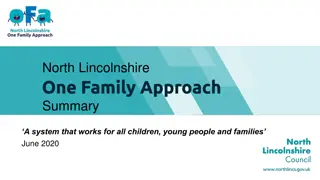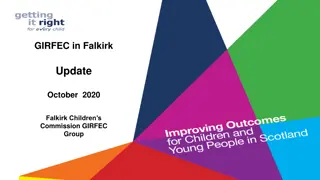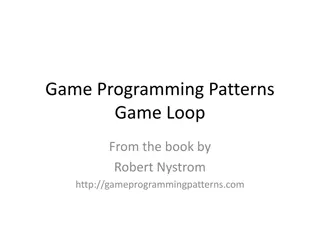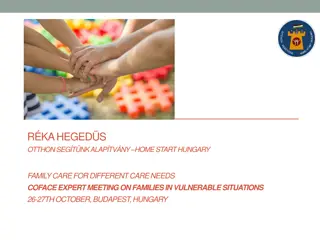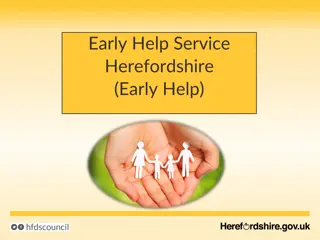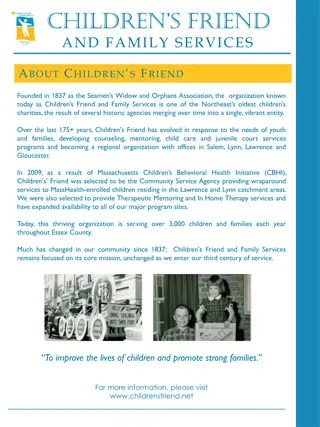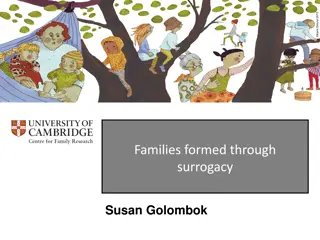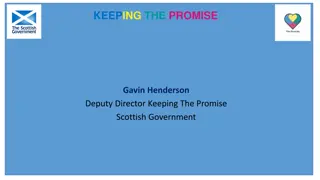Transforming Outcomes for Children and Families: A Game-Changing Approach
Established in 2007, the CDI focuses on prevention and early intervention through a range of programs targeting children and families. Interventions include early years support, literacy programs, and community initiatives. The commissioning process involves independent evaluations, and randomized controlled trials show significant improvements in literacy ability and behavior. Teacher and parent reports also demonstrate positive impacts on children's reading and home activities.
Download Presentation

Please find below an Image/Link to download the presentation.
The content on the website is provided AS IS for your information and personal use only. It may not be sold, licensed, or shared on other websites without obtaining consent from the author.If you encounter any issues during the download, it is possible that the publisher has removed the file from their server.
You are allowed to download the files provided on this website for personal or commercial use, subject to the condition that they are used lawfully. All files are the property of their respective owners.
The content on the website is provided AS IS for your information and personal use only. It may not be sold, licensed, or shared on other websites without obtaining consent from the author.
E N D
Presentation Transcript
A GAME OF TWO HALVES Why What Works? Matters. June 2019
BACKGROUND CDI established in 2007, as one of three Prevention and Early Intervention areas; Remit to design, deliver and evaluation a suite of interventions to improve outcomes for children and families; Manualised programmes, independently evaluated; Delivered through existing service providers.
INTERVENTIONS INCLUDED: Wrap around early years supports; Healthy Schools Programme; Literacy supports for 5-6 year olds; Community Safety Initiative; Early Intervention SLT; Pro-Social behaviour Programme for 8- 9 year olds.
COMMISSIONING: EU procurement process used to identify independent evaluation teams and service delivery providers; Queens University Belfast contracted to undertake RCT s on Doodle Den and Mate Tricks.
RANDOMISED CONTROLLED TRIALS: Children matched within schools and randomly assigned to either control or intervention groups; Children s outcomes tracked in both groups; Process evaluation alongside outcomes focus.
MAIN OUTCOMES: Doodle Den Children who attended Doodle Den had a 7 percentile point gain in their overall literacy ability; Combined with Teacher s ratings, this increased to a 12 percentile point gain; Children scored significantly higher in relation to: Word Recognition; Sentence Structure; Child s Word Choice.
FURTHER SIGNIFICANT EFFECTS: Teacher s reports indicate a 7 point percentile reduction in negative behaviours (ADHD related Behaviours); Parent s report increase in child s reading at home; Increase in family library activity (17 percentile point).
SECONDARY OUTCOMES: Attendance at School; Parental Report Child s Literacy Activity; Parental Reading Attitudes. These secondary outcomes were approaching statistical significance and all were moving in a positive direction.
MAIN OUTCOMES: Children made gains in their overall literacy (7 percentile points) Particular gains seen in: Word Recognition (7 percentile point gain); Sentence Structure (12 percentile point gain); and child s word choice (10 percentile point gain) Combined with teachers ratings, this increased to an 11 percentile point gain Teacher s report indicate a 7 percentile point decrease in negative behaviours
SECONDARY OUTCOMES: Parent s report increase in child's reading at home (10 percentile points) Increase in family library activity (15 percentile points) Improved school attendance Parental reported child literacy activity
RCT MAIN OUTCOMES: Mate-Tricks No significant change in majority of the 21 outcomes investigated -16 showed no impact. Three effects approaching significance: Liberal parenting (adverse effect); Conflict tactics (positive effect); Improvement in relationships with mothers (positive effect). Two statistically significant adverse effects: Anti-social Behaviour (PSB Questionnaire); Authoritative Parenting (APQ).
MAIN OUTCOMES: ANTI-SOCIAL BEHAVIOUR 5 Predicted Post Test ASB Predicted Post Test ASB 4 Scores** Scores** 3 2 1.4 1.21 1 Control Intervention
PROCESS EVALUATION: Views and observations of the programme are generally very positive; This may appear to be in contrast with the findings from the main analysis of programme effects. Not the case... In essence, the combined findings from the process evaluation and the outcomes data, provided by engaged parents and their children, is more favourable towards the Mate-Tricks programme than the findings from the full sample of parents and children; Commitment and hard work of the service providers and facilitators; The model of change or tools provided to them (i.e., the Mate- Tricks programme) was not effective in this context.
CONCLUSION: Instinct isn t enough; Quantitative and qualitative data are both valuable but we need both for the full picture; Enjoyment doesn t necessarily mean change.
